Family members experience stress and fear when someone that they care about is unable to stop drinking alcohol or using drugs. Loved ones play an important role in addiction recovery, but supporting an addict is difficult. It requires patience, tough love and faith.
The disease of addiction changes people. Abusing alcohol and other drugs has a profound impact on the brain. Addiction can make a person we’ve known for years act like someone we don’t know. People with the disease often say and do things that inflict emotional trauma on the people that love them.
Addiction ruins relationships, but families are vital resources for people who are addicted. Unfortunately, most people aren’t equipped to help someone with an addiction. They may have good intentions, but many people enable or stigmatize substance abuse.
Families tend to focus their support on the person with the addiction. They often forget to support one another. Friends and family members often need counseling, therapy and peer support to learn how to cope with emotional problems caused by someone else’s addiction.
People with addiction may have made a choice to try alcohol or other drugs, but they don’t choose to continue to use. The substances cause physical changes to their brain that make quitting nearly impossible.
Learning more about drug abuse, addiction and the treatment options available to your loved one will prepare you to tackle the problem as effectively as possible.
Supporting a loved one with an addiction is complicated. Family members have to constantly think about whether they’re enabling or helping. People who enable allow the person to take advantage of their kindness. They provide an environment that condones substance abuse because they’re unwilling to provide tough love.
Helping someone with an addiction involves setting boundaries, enforcing rules and providing love. You can help your loved one find support group meetings or an accredited rehab center. You can help the person practice coping techniques and stress-relief skills. But you shouldn’t let your loved one take advantage of you.
Friends, family members and self-help groups can support people who want to recover from addiction. But they can’t treat the disease. Helping a loved one find treatment and rebuild his or her life can be a rewarding experience. It can also be frustrating and exhausting.
When a loved one has a substance use disorder, it is natural for families to want to fix the problem. While their intentions are typically good, family members who don’t know the difference between helping and enabling may end up contributing to the addiction. However, there are several steps families can take to stop enabling and start helping.
Loved ones often enable addicts because they do not know the best way to help. Family members may condition themselves to think that they can control the addiction to minimize the risks. This results in a dysfunctional dynamic where families support the drug user’s dangerous lifestyle.
Enabling occurs when the friends and family of a substance user support the addiction through their thoughts or behaviors. People who enable act as a cushion for addicts, preventing them from facing the consequences of their substance abuse. When family members enable their loved one’s addiction, they lose respect for themselves, and the substance user loses respect for them. Ignoring the problem or engaging in enabling behaviors makes us lose self-respect because we know we’re not doing the right thing. Enabling not only creates a permissive attitude toward drug use, but also gives the addict no desire to seek treatment. Enabled addicts lose faith in themselves and do not respect loved ones who make it easier for them to continue using drugs.
Loved ones may enable the addict because they feel responsible for causing the substance use disorder. They often blame themselves for the addiction and try to make up for it by sacrificing time, money and energy. Family members make these sacrifices to reduce their loved one’s pain and suffering, but they often don’t realize they’re engaging in enabling behaviors that are barriers to recovery. Enabling behaviors come in many forms. By recognizing and ceasing these unhealthy behaviors, families can focus on getting their loved one proper treatment.
Denial is one of the primary behaviors that families adopt when they learn that their loved one is addicted to drugs. They refuse to accept the reality that their family member has a substance use problem. They convince themselves that treatment isn’t necessary and the addict will know how to control their drug or alcohol use.
Justification and denial work hand in hand. Families often reject the problem, making up reasons to justify their loved one’s addiction. For example, a family member may feel that it is fine for a loved one to use alcohol or drugs to cope after a stressful day at work. Parents may also believe the substance use is only temporary and will stop after a change in lifestyle such as college graduation.
Family members may think that they are controlling the situation if they allow their loved one to use drugs at home. They may even consume drugs or alcohol with the addict to manage their intake level and to make sure they gravitate toward home when using instead of more dangerous locations.
Not expressing your concerns about addiction to a person you love gives them a reason to keep using. In some cases, substance users dismiss their families’ fears by reassuring them that they will not consume drugs or alcohol. When an addict dismisses these fears and concerns, it may encourage family members to keep their feelings to themselves.
By ignoring the problem and not confronting the substance user, family members may feel that they are keeping the peace in their home. Instead of getting their loved one proper treatment, the family focuses on keeping up appearances to look normal.
A dysfunctional family dynamic may contribute to a codependence between the addict and family members. Codependency is a compulsive and self-destructive behavior that compromises a person’s ability to have a healthy relationship. Codependent people may forgo their needs to cater to a family member suffering from a substance use disorder. These unhealthy practices compromise the codependent person’s health, welfare and safety.
Codependent family members are in denial of their problem, which leads them to suppress their feelings. Instead of fixing their problems, they become void of emotions. They develop negative coping tools that encourage the avoidance of their feelings. Codependents with low self-esteem have self-acceptance issues; hence, they look to others to make themselves feel better.
CenterPointe offers a weekly support group at no cost for the family members and significant others of patients currently receiving care in one of CenterPointe’s addiction treatment programs. The Family Group provides support and informal education on addiction and family recovery issues.






